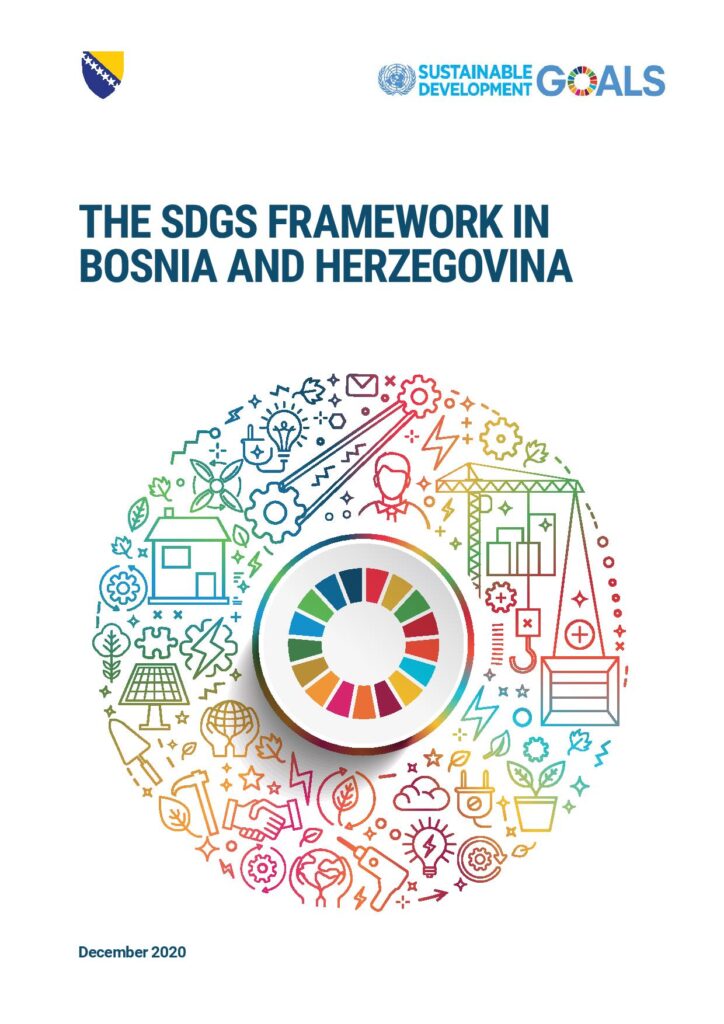[userpro template=login login_redirect=http://zamisli2030.ba/]
[userpro template=register register_redirect=http://zamisli2030.ba/]

„The practical success of idea, regardless of its inherent advantages, depends on attitude of people.“
Nikola Tesla.
Given their relevance for Agenda 2030 and the context of Bosnia and Herzegovina, two horizontal themes have been determined which are interwoven through three mentioned development pathways. They are “Human Capital for the Future” and the “Leave no one behind” principle.
Human capital means intangible collective resources possessed by individuals and groups within certain population. Human capital includes not only knowledge and skills but also experience, creativity, individuality, good health and moral character. In the business-organizational sense it is deemed that joint investments of an employer and employees in human capital contributes on a long-term basis not only to enterprise development but also to the whole society. Looking at it through a prism of public policies, citizens and public policies have to jointly invest in human capital and human capital has to be valued.
Human capital is one of the basic factors of development and its fostering is among key priorities in countries. Research in Bosnia and Herzegovina has indicated that insufficient investment in human capital, but also valuation of the existing one, result in population outflow, which is substantially increasing every year. Because of the importance of human capital the World Bank calculates the Human Capital Index, and according to the latest data as of 2017 Bosna and Herzegovina is ranked on the 58th position of 157 countries, with the Human Capital Index of 0,62. It means that a child born in Bosnia and Herzegovina today will achieve 62% of his/her full productivity as an adult in relation to what he/she could be with completed full education and with full health care.
Considering the fact that accelerated development is not possible without strong human capital, this Framework strives through the existing development pathways (Smart Growth, Society of Equal Opportunities, and Good Governance and Public Sector Management) to incorporate the importance of investing in human capital and its valuation. Recognizing human capital as a crucial factor for development and implementation of the policies which contribute to human capital development may prevent the population outflow, but also result in potential return of the population that has already left.
Introducing the “Leave no one behind” principle in practice requires mechanisms of management and accountability from the local to the international level. It also means that there are certain measures enabling that a progress in implementing the “Leave no one behind” principle is visible through steps being taken towards achieving the targets related to accomplishing equality. It will not be possible to achieve the SDGs if the poorest and most vulnerable remain neglected and excluded from development processes or if they do not have benefits from the achieved progress and enhancements in the society. It is important to explore which persons are neglected and left behind in Bosnia and Herzegovina in a broader sense, in which parts of the country they live, what the causes and consequences of their negligence are, and which policies have to be defined in order to improve their position in the society.
In Bosnia and Herzegovina the “Leave no one behind” principle has been earlier incorporated through the prism of social inclusion and social protection. However, this concept goes deeper than the previous approach and it calls for combination of targeted policies in order to enhance the condition of the most vulnerable categories of population and policies targeted on more equitable and sustainable growth and on creating an environment which actively encourages inclusion of everyone in the decision-making processes, with full observance, protection and exercising human rights. Due to that reason, the accelerators and drivers under three development pathways emphasize a need to focus on policies and measures targeted on the neglected and excluded part of the population (affirmative measures).